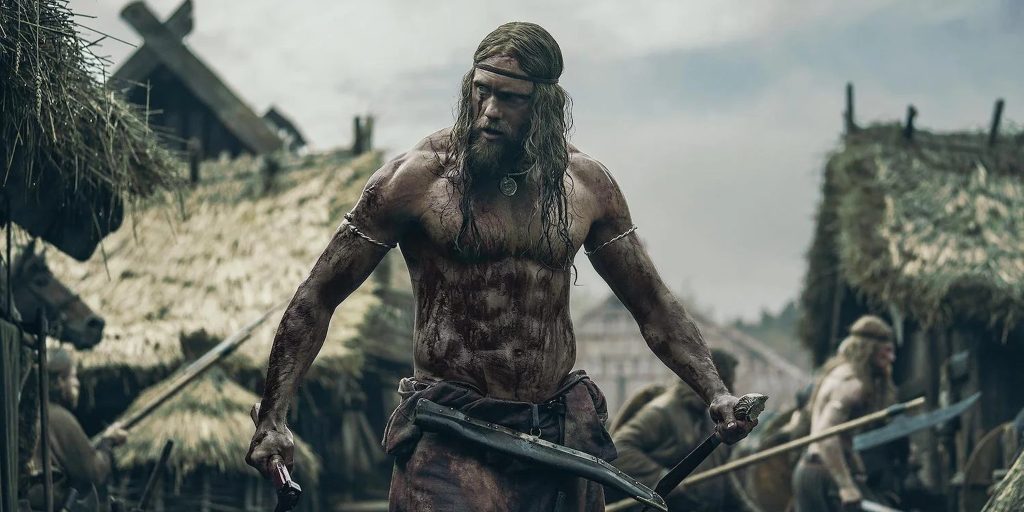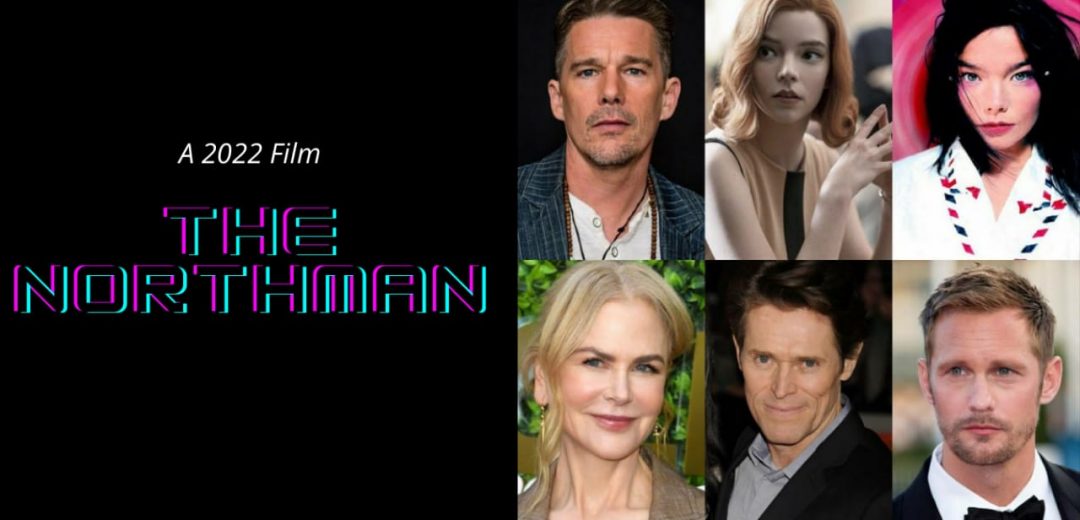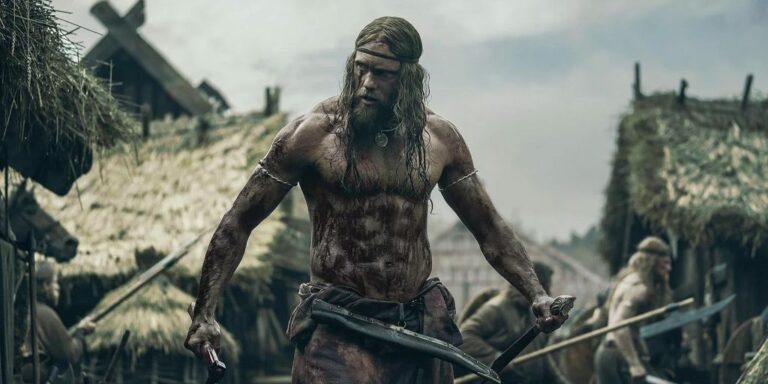Are you curious about the inspiration behind the upcoming film The Northman? The Northman is loosely based on the story of Amleth, a character from a medieval Scandinavian legend. This same story also inspired the character of Prince Hamlet in Shakespeare’s famous tragedy. But how accurate is the film historically? And why is Valkyrie wearing braces? Let’s delve into these questions and more to uncover the truth behind this highly anticipated movie.
Unveiling the Truth Behind the Inspiration for Northman.
The Northman, the upcoming historical epic, has been a hot topic of discussion in recent times. One of the common questions asked by fans is whether the movie is based on a true story. The answer is both yes and no. The Northman is loosely based on the story of Amleth, a figure in a medieval Scandinavian legend. The character of Amleth, also known as Amlóði in Old Norse, is the direct inspiration for the character of Prince Hamlet in William Shakespeare’s famous tragedy, Hamlet, Prince of Denmark.
The story of Amleth, which dates back to the 13th century, tells the tale of a prince who seeks revenge against his uncle, who has murdered his father and married his mother. The story is one of the most famous in Norse mythology and has been adapted numerous times in various forms of media. The Northman takes inspiration from this story but is not a direct adaptation of it.
It is important to note that while The Northman is not entirely based on a true story, it draws heavily from historical events and Norse culture. The film explores the Viking Age, a period in history that lasted from the late 8th century to the mid-11th century. During this time, Norse seafarers raided and traded across Europe, leaving a lasting impact on the continent’s history. The Northman captures the essence of the Viking Age and its culture, making it a compelling watch for history buffs.
In conclusion, The Northman is not based on a true story in the strictest sense of the word, but it draws inspiration from Norse mythology and historical events. The character of Amleth, who inspired Shakespeare’s Hamlet, serves as a loose basis for the film’s plot. The Northman’s depiction of the Viking Age and its culture is accurate, making it an interesting watch for those interested in history.

🍿 Must Read Is The North Water series a true story?
Unraveling the Myth Behind The Northman’s Storyline.
The Northman is a highly anticipated movie by director Robert Eggers, and it has received much attention for its unique storyline. The movie is based on the legend of Amleth, which was written by Danish historian Saxo Grammaticus. The story of The Northman is largely inspired by this legend, which is known to be the direct inspiration behind one of William Shakespeare’s most famous plays, Hamlet.
Robert Eggers and co-writer Sjón undertook extensive research to develop the screenplay for The Northman. They were drawn to the story of Amleth and its connections to Hamlet, as well as its historical significance. The legend of Amleth is one of the oldest surviving tales from the Viking Age, and it tells the story of a young prince seeking revenge for his father’s murder.
The Northman is set in the 10th century, and it follows the journey of a Viking prince named Amleth, played by Alexander Skarsgård. The movie explores themes of revenge, family, and power as Amleth sets out to avenge the death of his father at the hands of his uncle. The story is a fascinating blend of history and mythology, and it promises to be an epic adventure that will captivate audiences.
In conclusion, The Northman is based on the legend of Amleth, which was written by Saxo Grammaticus and is known to be the direct inspiration behind William Shakespeare’s Hamlet. The research undertaken by Robert Eggers and Sjón has helped to shape the movie’s storyline, and it promises to be a fascinating blend of history and mythology. With an all-star cast and stunning visuals, The Northman is one of the most highly anticipated movies of the year.
Unraveling the Mystery Surrounding the Existence of Amleth: Was He a Real Person?
Shakespeare’s Hamlet is a celebrated and much-loved play that has been adapted and reinterpreted countless times. However, the story that forms the basis of Hamlet is not entirely original. The tale of a young prince seeking to avenge his father’s murder has been told in various forms throughout history. One of the earliest versions of the story is the Danish legend of Amleth.
Amleth was not a real person but rather a figure of legend. However, the legend of Amleth was based on a real historical figure, Rorik. Rorik was a Viking who was King of Jutland and ruled over parts of Denmark during the ninth century. It is said that Rorik was a fearsome warrior and a skilled politician. He was revered by his people, and his exploits were celebrated in many tales and legends.
Amleth, Rorik’s grandson, was a character created by storytellers, and his story was passed down through the generations. The story of Amleth bears many similarities to Shakespeare’s Hamlet, including the young prince seeking revenge for his father’s murder. However, Amleth’s story is much more fantastical than Hamlet’s. In the legend, Amleth is portrayed as a cunning and resourceful hero who uses his intelligence to outsmart his enemies.
One of the most notable differences between the legend of Amleth and Hamlet is the number of wives each character has. In the legend of Amleth, the young prince takes two wives, while Hamlet remains unmarried throughout the play. This difference highlights the divergence of the two stories and how they have been adapted over time.
While Amleth may not be a real person, his story has had a lasting impact on literature and storytelling. The legend of Amleth has been adapted and reinterpreted countless times, and it continues to inspire writers and artists to this day. The story of Amleth is a testament to the enduring power of storytelling and the human desire for revenge and justice.

The Link Between Northman and Hamlet: A Comparative Analysis.
Robert Eggers’s The Northman is a movie that has been generating a lot of buzz lately, with many people wondering if it is based on William Shakespeare’s play, Hamlet. Although The Northman is not an adaptation of Hamlet, it is clear that the movie is in conversation with the classic play. It draws inspiration from Hamlet’s themes and characters and uses them to create a unique story that stands on its own.
The influence of Hamlet on modern culture is undeniable, with countless adaptations, references, and allusions made to the play in movies, TV shows, and books. The Northman is just the latest addition to this long list of works that have been shaped by Hamlet’s enduring legacy.
Robert Eggers, the film’s director, has stated that The Northman is not based on any specific historical person or event. Instead, the movie is a fictional tale set in the Viking Age, with its own unique characters and storyline that draw from various sources, including Norse mythology and medieval literature.
Despite not being a direct adaptation of Hamlet, The Northman still manages to capture the play’s essence and themes, such as revenge, family, and betrayal. It features a cast of complex and flawed characters who are driven by their passions and desires, much like Hamlet and his family.
In conclusion, although The Northman is not based on Hamlet, it is a movie that is deeply influenced by the play’s legacy and themes. It is a testament to the enduring power of Shakespeare’s work and its ability to inspire and shape new stories and characters for generations to come.
>> Related – Was Nanook of the North a real person?
The Connection Between Northman and True Blood: Fact or Fiction?
The popular vampire series True Blood, which aired on HBO from 2008 to 2014, features a prominent character named Eric Northman who is also a Viking. However, it is important to note that The Northman and True Blood are not related in terms of their storyline. The character’s name might suggest a connection, but it is simply a coincidence. The Northman is based on a Viking revenge saga and features a different set of characters and plotlines.
Nonetheless, the shared Viking background between Eric Northman from True Blood and the characters in The Northman is significant. It draws from the rich mythology that surrounds the Vikings and their way of life. The Northman’s storyline, although fictional, is heavily based on Viking culture and history, with the characters and events inspired by real-life events and individuals.
In conclusion, while the character of Eric Northman in True Blood might have a matching name to the upcoming film The Northman, it is not based on the same story. The Northman is a standalone film that is inspired by Viking history and culture, which makes it an exciting and unique addition to the world of cinema.
Analyzing The Northman’s Historical Accuracy: Separating Fact from Fiction
The Northman is a movie that takes us back in time to the Viking Age. While it is a work of fiction, the movie has been praised for its depiction of historical accuracy. From the types of dwellings that different social groups lived in, to the weapons they used to fight each other, the ancient rituals they practiced to pass on knowledge and commune with the gods, and the depictions of historical events and places, The Northman is exceedingly accurate.
The movie has been praised for its detailed attention to historical accuracy, which immerses the audience in the world of the Vikings. It provides an authentic portrayal of the Viking Age, which was a time of great expansion and exploration. The filmmakers have gone to great lengths to ensure that the clothing, weapons, and architecture of the time were faithfully recreated.
The depiction of Viking society in The Northman is also accurate. The movie shows the different social groups that existed in Viking society, such as the jarls, thralls, and freemen. It also shows the roles that women played in Viking society, which were often underestimated in the past. The movie depicts women as warriors and leaders, which is historically accurate.
In conclusion, The Northman is a movie that is highly accurate in its historical depiction of the Viking Age. It is a testament to the filmmakers’ dedication to authenticity and provides an immersive experience for the audience. The attention to detail in the movie, from the types of dwellings to the weaponry, is impressive and makes for a compelling viewing experience.

The Decline and Fall of the Viking Age: What Caused its Demise?
The Viking Age is a fascinating period in history that saw the rise of the seafaring Norsemen, who explored, raided and settled in various parts of Europe. However, the question of what ended the Viking Age remains a topic of debate among historians. While factors such as climate change, internal conflicts, and the rise of powerful European kingdoms have been cited as contributing to the decline of Viking influence, the events of 1066 in England effectively marked the end of the Viking Age.
By the 11th century, all of the Scandinavian kingdoms had embraced Christianity, which had a significant impact on Viking culture. The Vikings’ pagan beliefs and practices were gradually replaced by Christian teachings and traditions, and what remained of their culture was being absorbed into the culture of Christian Europe. In addition, the decline of Viking raids and invasions was partly due to the increasing power of European kingdoms, which were better equipped to defend themselves against Viking attacks.
The year 1066 proved to be a significant turning point in Viking history. In that year, the Battle of Stamford Bridge saw the defeat of Harald Hardrada, King of Norway, by the forces of the English king, Harold Godwinson. This was followed by the Battle of Hastings, in which Harold Godwinson was defeated by William the Conqueror, Duke of Normandy. These events effectively marked the end of the Viking Age, as they led to the decline of Viking influence in England and the rest of Europe.
In conclusion, while the Viking Age was a period of great significance in history, its decline was inevitable due to a combination of factors, including the rise of Christianity, the decline of Viking raids, and the increasing power of European kingdoms. The events of 1066 in England marked a turning point in Viking history and effectively ended the Viking Age, as Vikings’ influence was absorbed into the culture of Christian Europe.
The Surprising Reason Valkyrie is Sporting Braces: A Closer Look
When the trailer for The Northman was released, many people were confused about the braces worn by Casey, who plays Valkyrie in the movie. Some speculated that this was a historical inaccuracy, as braces were not invented until centuries later. However, it turns out that the grooves in Casey’s teeth are actually based on real Viking skeletons that were discovered with similar markings.
The grooves in the teeth of Viking skeletons were often very shallow, and they were filed in a straight line across the front of the teeth. Historians are not entirely sure why this was done, but some theories suggest that it may have been for intimidation in battle, while others believe it may have been a way to honor the gods.
It is worth noting that the grooves in the teeth of Viking skeletons were not the same as modern braces. Braces are used to straighten teeth and correct bite issues, while the grooves in Viking teeth were purely decorative. However, the grooves do give us an interesting insight into Viking culture and provide an example of how they may have used their bodies to communicate their beliefs and values.
In conclusion, the grooves in the teeth of Viking skeletons are the inspiration behind Valkyrie’s “braces” in The Northman. While historians are not entirely sure why the Vikings filed these grooves into their teeth, it is clear that they were an important part of their culture and may have been used for a variety of purposes. The inclusion of this detail in the movie adds an extra layer of historical accuracy and helps to bring the world of the Vikings to life on the big screen.
More to discover
while The Northman may not be entirely historically accurate, it is loosely based on the story of Amleth, a figure in a medieval Scandinavian legend that inspired the character of Prince Hamlet in Shakespeare’s famous tragedy. The film takes creative liberties with the source material, but its roots can be traced back to the same 13th century Norse tale. So if you’re a fan of Vikings, medieval legends, or just great storytelling, The Northman is definitely worth checking out.
